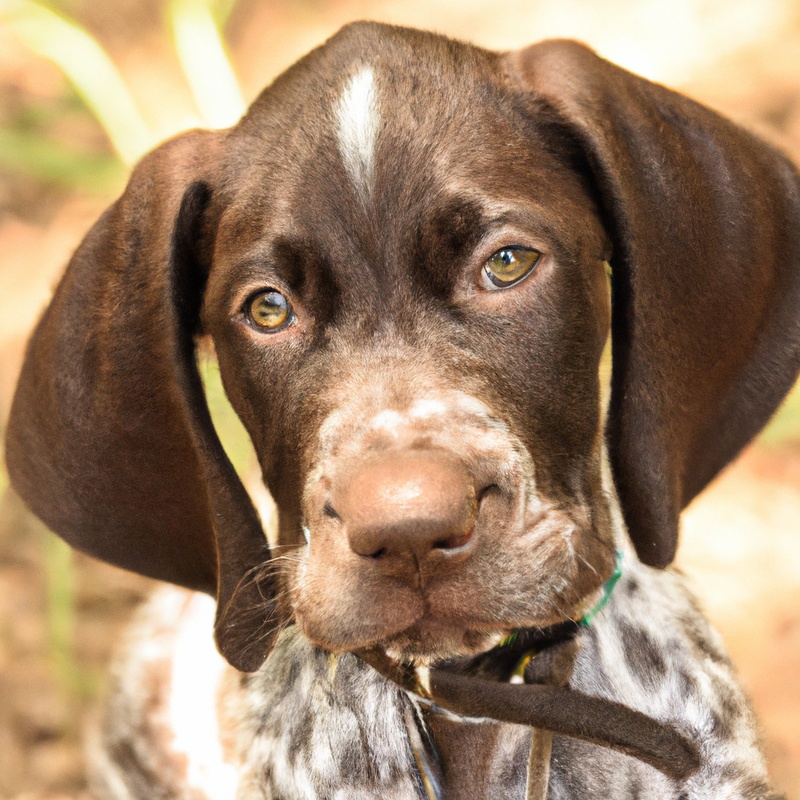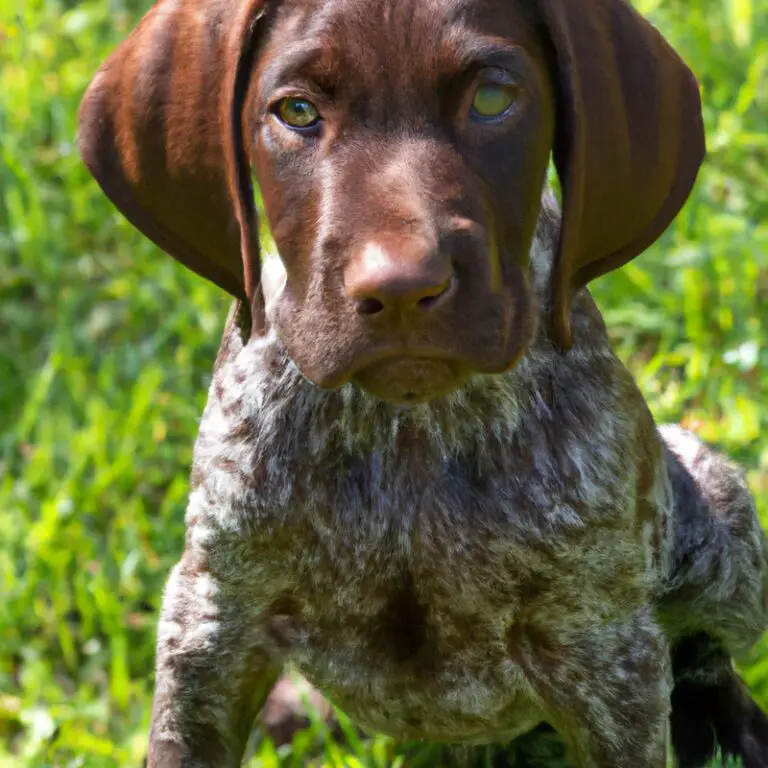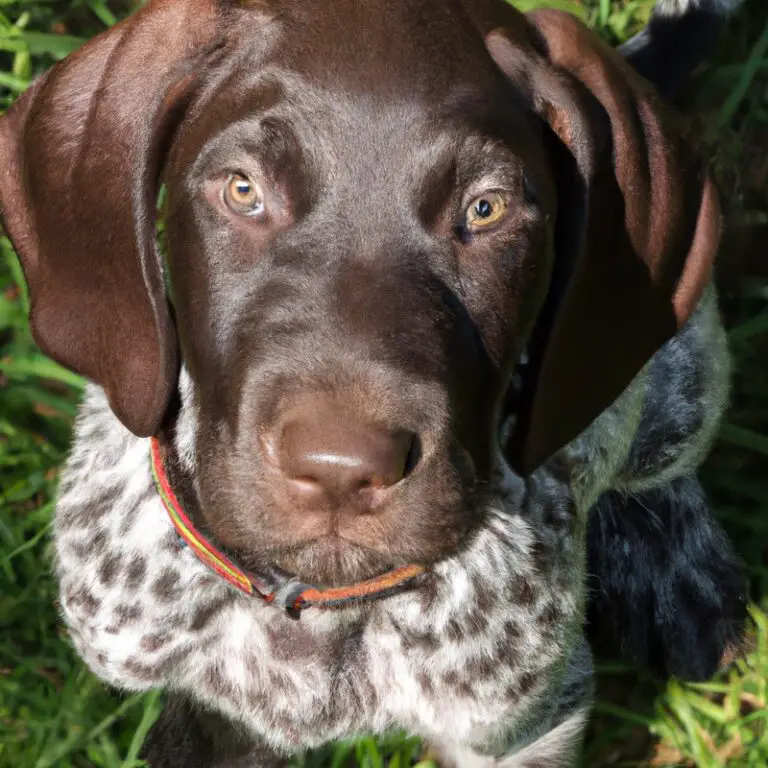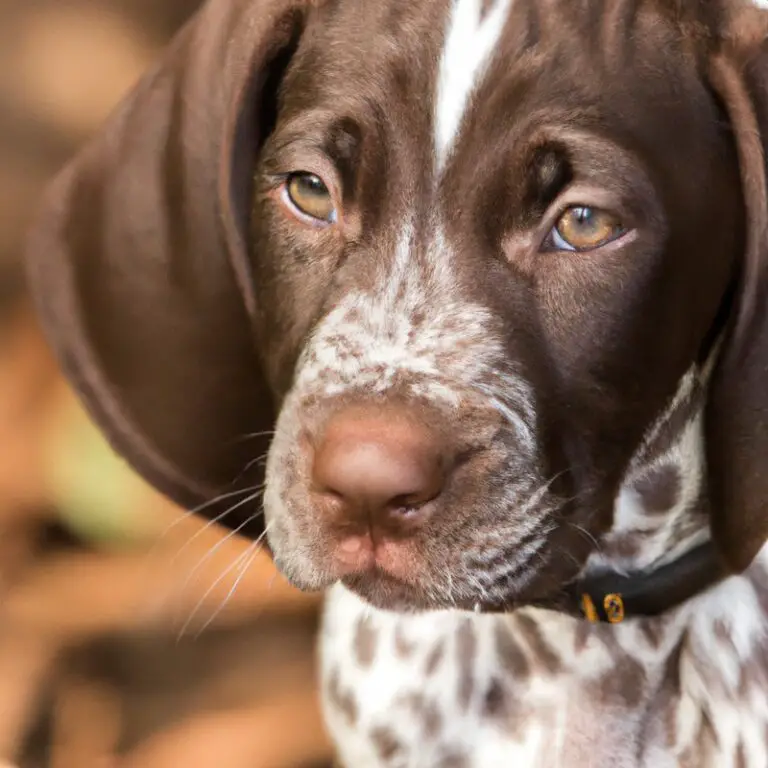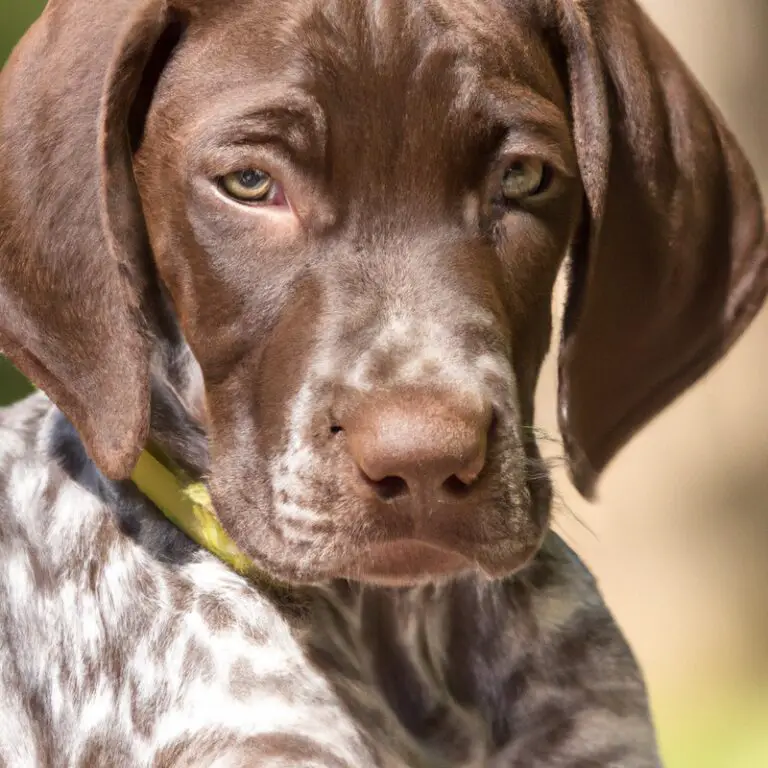How Can I Prevent My German Shorthaired Pointer From Digging Holes In The Yard?
Key Takeaways:
- Provide adequate mental and physical stimulation to prevent boredom and reduce the urge to dig.
- Create a designated digging area in the yard to redirect your German Shorthaired Pointer’s digging behavior.
- Address any underlying behavioral or anxiety issues through training, socialization, and positive reinforcement.
- Use deterrents such as barriers, sprays, or natural remedies to discourage your dog from digging in unwanted areas.
Do you have a German Shorthaired Pointer who seems determined to turn your yard into a Swiss cheese of holes? Don’t worry, you’re not alone.
These energetic and curious dogs have a natural penchant for digging, and it can be a frustrating behavior to deal with.
But fear not! With a little understanding and some practical tips, I’m here to help you put an end to this hole-digging madness once and for all. Together, we’ll explore the instincts behind this behavior, the factors that contribute to it, and most importantly, the practical steps you can take to prevent your German Shorthaired Pointer from turning your yard into a construction zone.
So let’s roll up our sleeves and put an end to the digging frenzy!
| Methods | Pros | Cons |
| Provide enough physical exercise | 1. Helps burn off excess energy 2. Keeps the dog entertained 3. Reduces the urge to dig | 1. Requires time commitment 2. May not completely eliminate digging behavior |
| Create designated digging areas | 1. Provides an outlet for natural behavior 2. Allows the dog to satisfy its digging instinct 3. Protects the rest of the yard | 1. Initial training required 2. Regular maintenance of designated areas |
| Provide mental stimulation | 1. Helps keep the dog mentally engaged 2. Reduces boredom, which can lead to digging | 1. Some mental stimulation options may not be suitable for every dog 2. Requires variety and regular rotation of activities |
| Supervise and redirect | 1. Allows you to catch the dog in the act of digging 2. Provides an opportunity to redirect the dog’s attention to a more appropriate activity | 1. Requires constant supervision 2. Inconsistent supervision may result in reinforcement of digging behavior |
| Buried deterrents | 1. Can deter the dog from digging in specific areas 2. Provides negative reinforcement | 1. Requires regular maintenance 2. May not be effective for all dogs |
Understanding the digging behavior of German Shorthaired Pointers
The instincts behind digging in German Shorthaired Pointers
German Shorthaired Pointers have a natural instinct to dig, which is rooted in their hunting heritage. These dogs were bred to be versatile hunting companions, skilled at tracking and retrieving games.
Digging serves a few purposes for them:
- Hunting: Digging allows German Shorthaired Pointers to access burrowing prey, such as rabbits or rodents, by creating tunnels or digging them out of their hiding spots.
- Cooling off: Dogs regulate their body temperature through their paws, and digging can provide them with a cooler surface to lay on when the ground is hot.
- Boredom or excess energy: Some German Shorthaired Pointers may dig out of boredom or to release pent-up energy. This behavior can be more common in dogs that lack mental and physical stimulation.
Understanding these instincts behind digging can help you address the root causes and find appropriate solutions to prevent excessive digging in your German Shorthaired Pointer.
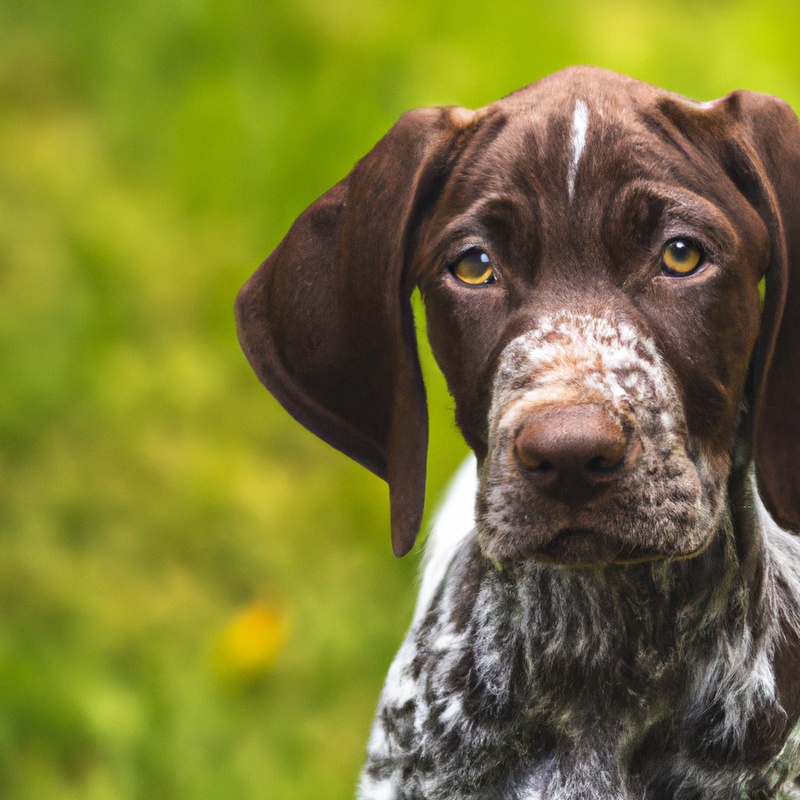
Factors that contribute to digging behavior in German Shorthaired Pointers
German Shorthaired Pointers are known for their energetic and active nature, which can sometimes lead to digging behavior. There are several factors that contribute to this behavior:
- Boredom: German Shorthaired Pointers are intelligent dogs that require mental and physical stimulation. If they are not provided with enough exercise and enrichment, they may dig as a way to relieve their boredom.
- Natural instincts: These dogs were bred for hunting and have a strong instinct to dig. They are known for their ability to track and retrieve game, which often involves digging for prey. This instinct can be hardwired into their behavior.
- Temperature regulation: Digging can also be a way for German Shorthaired Pointers to cool down or warm up. By digging a hole, they can find cooler soil to lie in on hot days or create a cozy den to keep warm in colder weather.
- Anxiety or stress: Like any dog, German Shorthaired Pointers can experience anxiety or stress, which may manifest as digging. This behavior can provide them with an outlet for pent-up energy or a way to cope with their emotions.
Understanding these factors can help you address and prevent excessive digging behavior in your German Shorthaired Pointer. By providing them with plenty of exercise and mental stimulation, creating designated digging areas, and addressing any underlying anxiety or stress, you can help redirect their energy and prevent them from digging holes in your yard.
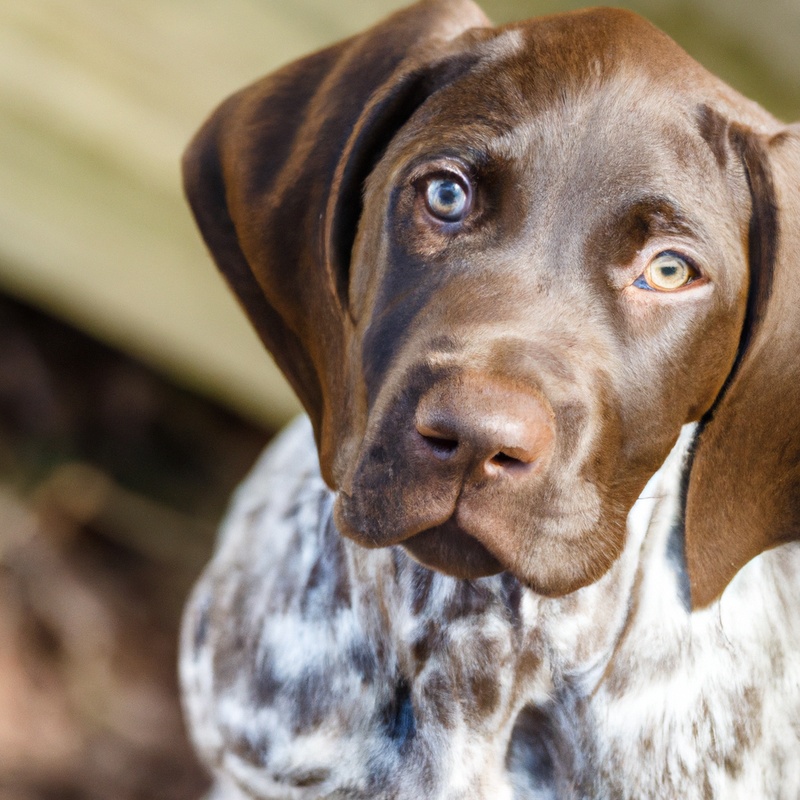
Practical tips to prevent digging in German Shorthaired Pointers
Provide mental and physical stimulation
Providing your German Shorthaired Pointer with both mental and physical stimulation is essential to prevent them from digging holes in your yard. Dogs often resort to digging out of boredom or excess energy.
Here are some tips for stimulating your pup:
- Engage in regular exercise: Take your German Shorthaired Pointer for long walks, runs, or play interactive games like fetch. Physical activity helps expend their energy and reduces the likelihood of them turning to digging.
- Mental enrichment: Keep your dog’s mind occupied with puzzle toys, interactive feeders, or hide-and-seek games. This helps stimulate their problem-solving skills and prevents boredom.
- Training sessions: German Shorthaired Pointers are intelligent dogs that thrive on mental challenges. Regular training sessions not only enhance their obedience skills but also provide mental stimulation.
- Playdates and socialization: Allow your dog to socialize with other dogs through playdates or visits to the dog park. Social interaction helps keep them mentally stimulated and prevents them from seeking entertainment through digging.
Create designated digging areas
Creating designated digging areas is a great way to prevent your German Shorthaired Pointer from digging holes in your yard. Dogs naturally have the urge to dig, so giving them a designated spot to do so can help redirect their behavior.
Here are some tips for creating a designated digging area:
- Choose a suitable spot: Select an area in your yard where it’s acceptable for your dog to dig. Make sure it’s away from important plants or structures.
- Provide digging materials: Fill the designated area with loose soil or sand to make it more appealing for your dog to dig. You can also bury some toys or treats to make it even more enticing.
- Encourage your dog: Show your dog the designated area and encourage them to dig there by using positive reinforcement. Reward them with treats or praise when they use the designated spot.
- Supervise and redirect: Keep an eye on your dog while they’re outside and redirect them to the designated area if you catch them digging elsewhere. Consistency is key to helping them understand where they should be digging.
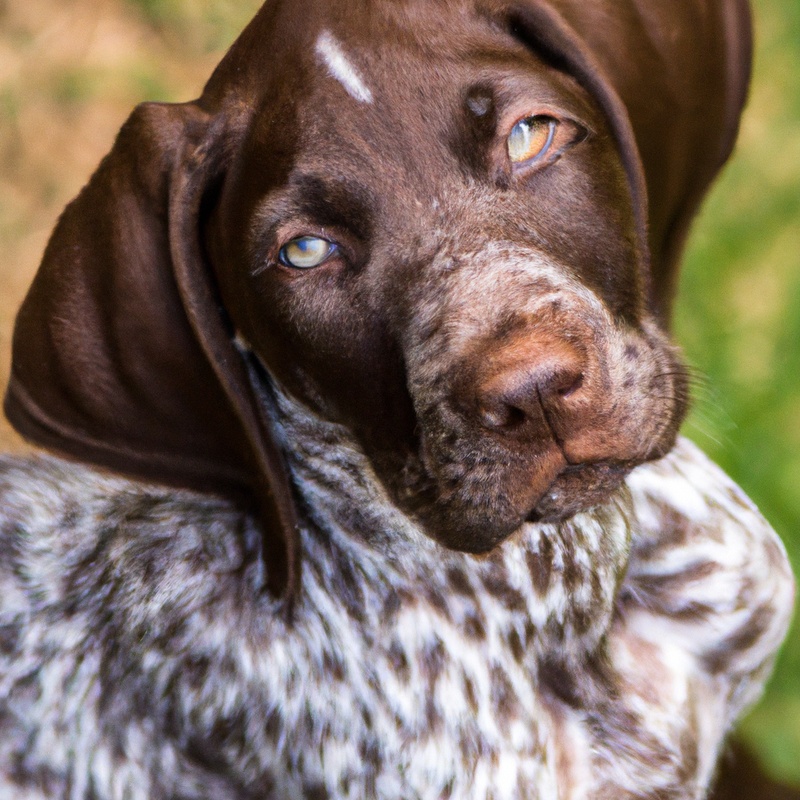
Reinforce positive behavior with rewards
Reinforcing positive behavior with rewards is a great way to prevent your German Shorthaired Pointer from digging holes in the yard. First and foremost, it’s important to catch your dog in the act and redirect their attention to a more appropriate behavior, like playing with a toy or following a command.
When your dog chooses not to dig, make sure to praise and reward them immediately.
This could be with treats, verbal praise, or a favorite toy. Consistency is key, so be sure to reward your dog every time they make the right choice.
In addition to immediate rewards, you can also provide long-term incentives.
For example, create a digging area in the yard where it’s allowed, and bury toys or treats for your dog to find. This makes digging in that designated area a fun and rewarding experience for them.
Use deterrents to discourage digging
If you’re looking for some practical tips to prevent your German Shorthaired Pointer from digging up your yard, deterrents can be quite effective. Here are a few options to discourage your dog from this behavior:
- Bury chicken wire or rocks: Before you plant anything in your yard, consider burying chicken wire or rocks in the areas where your dog likes to dig. This will make it difficult for them to dig and discourage the behavior.
- Use smell repellents: Dogs are sensitive to certain smells, so using repellents can help deter them from digging. Citrus peels, vinegar, and commercial dog repellents can be applied to the areas your dog frequents to discourage them.
- Create a digging zone: Provide an alternative digging area for your dog, such as a sandbox or designated spot in the yard. Fill it with sand or soft soil and bury toys or treats to encourage digging in that specific area.
- Supervise and redirect: Keep an eye on your dog when they’re outside and redirect their attention if you catch them starting to dig. Divert their focus with toys or games to distract them from digging.
Supervise and redirect your German Shorthaired Pointer
Supervising and redirecting your German Shorthaired Pointer is an effective way to prevent them from digging holes in your yard. First and foremost, keep an eye on them when they are outside.
By being present, you can catch them in the act and redirect their attention to something more appropriate.
If you notice them starting to dig, quickly intervene and redirect them to a designated digging area or provide them with toys and activities to keep them occupied.
Addressing underlying issues to prevent digging in German Shorthaired Pointers
Rule out medical causes
First and foremost, it is important to rule out any medical causes for your German Shorthaired Pointer’s digging behavior. Some underlying health issues, such as allergies or skin irritations, can lead to excessive digging.
If your furry friend is frequently scratching or biting at their skin, it could be a sign of an underlying medical condition.
It is always a good idea to consult with your veterinarian to rule out any potential health issues and ensure your pup is in good health. Once any medical causes have been addressed, you can then focus on modifying their behavior.
Manage separation anxiety
Managing separation anxiety in German Shorthaired Pointers is crucial to prevent them from digging holes in the yard. First and foremost, establish a consistent routine for leaving and returning home.
This helps your dog feel more secure and less anxious when you’re away.
Another effective strategy is to gradually increase the duration of your departures, starting with short periods and gradually extending them. Providing plenty of mental and physical exercise before leaving can also help tire your dog out and reduce anxiety.
Additionally, offering toys or puzzle feeders can keep them occupied while you’re gone.
Consider using positive reinforcement training techniques to teach your dog to stay calm and relaxed when you’re not home.
Address boredom and lack of attention
Addressing boredom and lack of attention is a crucial aspect of preventing your German Shorthaired Pointer from digging holes in the yard. First and foremost, make sure your pup gets enough mental and physical exercise throughout the day.
Engage them in activities like walks, runs, and playtime to keep them stimulated and tire them out.
Puzzle toys, interactive games, and training sessions can also help keep their minds busy. Additionally, provide your German Shorthaired Pointer with plenty of toys and chews to keep them entertained when you’re not around.
Rotate their toys regularly to prevent boredom and consider adding some puzzle toys to challenge their problem-solving skills.
Another important aspect is giving your pup enough attention and affection. Spend quality time with them, give them belly rubs, and include them in your daily activities.
Dogs can become anxious or bored when left alone for long periods, so make sure they feel loved and included in your life.
Seek professional training assistance if needed
If you’re struggling to stop your German Shorthaired Pointer from digging up your yard, don’t hesitate to seek professional training assistance. Sometimes, despite our best efforts, our furry friends need a little extra guidance.
Professional trainers have the expertise and experience to address the underlying issues behind your dog’s digging behavior.
They can provide you with effective strategies and techniques tailored to your German Shorthaired Pointer’s specific needs.
Tips for retraining a German Shorthaired Pointer with a digging problem
Understanding the importance of consistency in training
Consistency in training is key when it comes to teaching your German Shorthaired Pointer (GSP) good behavior and preventing unwanted habits like digging holes in the yard. By being consistent, you are sending clear messages to your dog and reinforcing what is acceptable and what is not.
It’s crucial to set and stick to the same rules and commands every time, as this helps your GSP understand what is expected of them.
Implementing positive reinforcement techniques
Implementing positive reinforcement techniques is key when it comes to retraining a German Shorthaired Pointer with a digging problem. By using positive reinforcement, you can encourage your dog to engage in alternative behaviors instead of digging up your yard.
First and foremost, it’s important to identify the triggers that cause your dog to dig and address them accordingly.
One effective technique is to redirect your dog’s attention to a more desirable activity, such as playing with toys or going for a walk, whenever they start digging. Praise and reward your dog whenever they engage in these positive behaviors, reinforcing the idea that digging is not the preferred option.
Consistency is crucial when implementing positive reinforcement techniques.
Make sure to reinforce good behaviors consistently and avoid inadvertently rewarding your dog for digging. By being patient and persistent, you can help your German Shorthaired Pointer break the habit of digging and create a happier, healthier environment for both of you.
Redirecting your dog’s digging behavior
Redirecting your dog’s digging behavior is essential for preventing them from creating unwanted holes in your yard. Here are some tips to help you with this process:
- Provide an alternative: Give your German Shorthaired Pointer a designated digging area where they are allowed to dig. This can be a sandbox or a specific spot in your yard. Fill it with soft soil or sand and encourage your dog to dig there instead of other areas.
- Engage in interactive play: Make sure your dog is mentally and physically stimulated by playing interactive games with them. This will help redirect their energy towards positive activities and reduce their desire to dig.
- Supervise and redirect: Whenever you catch your dog digging in an inappropriate area, calmly redirect their attention to their designated digging spot. Use treats or toys to entice them and praise them when they dig in the right place.
- Digging deterrents: If your German Shorthaired Pointer continues to dig in unwanted areas, you can use natural deterrents to discourage them. Examples include burying rocks or chicken wire in the soil, or using citrus peels or vinegar to create unpleasant scents.
Providing alternative outlets for energy
Providing alternative outlets for energy is crucial when it comes to preventing your German Shorthaired Pointer from digging up your yard. First and foremost, make sure your dog is getting plenty of exercise.
Take them for regular walks or runs, and engage them in active play sessions.
In addition to physical exercise, mental stimulation is also important. Consider providing your dog with puzzle toys or engaging in obedience training to keep their mind occupied and focused.
Another great way to provide an alternative outlet for energy is to introduce your dog to activities such as agility, tracking, or scent work.
These activities not only keep your dog physically active but also help channel their energy in a positive direction. Lastly, don’t forget about socialization.
Arrange playdates with other dogs or take your dog to a dog park where they can interact and burn off energy in a controlled environment.
By incorporating these alternative outlets for energy, you can help prevent your German Shorthaired Pointer from resorting to digging as a way to release their excess energy.
Seeking guidance from a professional dog trainer
If you’re struggling with your German Shorthaired Pointer’s digging problem, seeking guidance from a professional dog trainer is a great idea. A professional trainer can provide you with personalized advice and techniques to address this specific issue.
They have the knowledge and experience to understand why your dog is digging and can help you develop a training plan tailored to your pup’s needs.
With their guidance, you’ll be on your way to preventing those pesky holes in your yard.
Final Verdict
Understanding the digging behavior of German Shorthaired Pointers is key to effectively preventing them from wreaking havoc in your yard. By addressing their instincts and the underlying factors that contribute to their digging behavior, you can implement practical tips and strategies to deter them from digging.
Remember to provide mental and physical stimulation, create designated digging areas, reinforce positive behavior, use deterrents, and supervise and redirect your German Shorthaired Pointer.
Additionally, addressing any underlying issues, such as medical causes or separation anxiety, is crucial. And if retraining is necessary, consistency, positive reinforcement, and guidance from a professional trainer will pave the way for success.
By taking these steps, you can create a harmonious environment for both you and your faithful companion.

